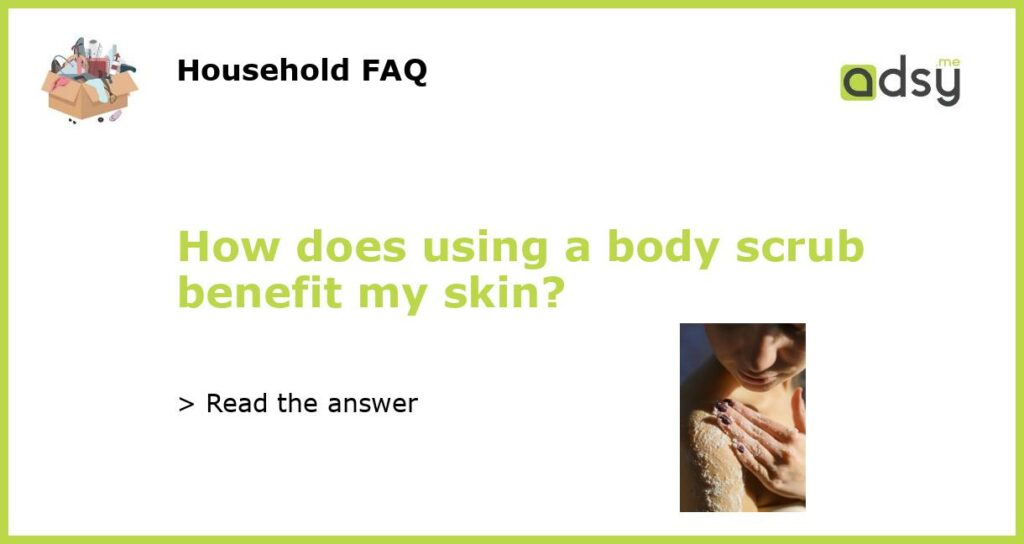Benefits of using a body scrub for your skin
If you’re looking to improve the appearance and health of your skin, using a body scrub can be a great addition to your skincare routine. Here are some of the benefits of using a body scrub:
Exfoliating dead skin cells
One of the primary benefits of using a body scrub is that it helps to exfoliate dead skin cells from the surface of your skin. When left on, dead skin cells can clog your pores, leading to breakouts and dull-looking skin. By regularly using a body scrub, you can help to slough off dead skin cells, revealing brighter and healthier-looking skin.
Enhancing circulation
Another benefit of using a body scrub is that it can help to enhance circulation in the body. When you exfoliate your skin, you increase blood flow to the surface, which can help to promote healthy cell growth and repair. Plus, increased circulation can give your skin a healthy, radiant glow.
Moisturizing your skin
Many body scrubs are made with moisturizing ingredients, such as oils and butters, which can help to hydrate and nourish your skin. By removing dead skin cells and allowing the moisturizing ingredients to penetrate more deeply, you can achieve smooth and soft skin that looks and feels healthy.
Reducing ingrown hairs
If you tend to experience ingrown hairs after shaving or waxing, using a body scrub can help to prevent them from forming. By exfoliating the skin and preventing dead skin cells from clogging hair follicles, you can reduce the likelihood of ingrown hairs, which can be painful and unsightly.
Preventing premature aging
Finally, using a body scrub can help to prevent premature aging by promoting healthy cell turnover. Over time, dead skin cells can build up on the surface of your skin, leading to fine lines, wrinkles, and other signs of aging. By regularly exfoliating your skin with a body scrub, you can help to minimize these effects and achieve a more youthful appearance.






